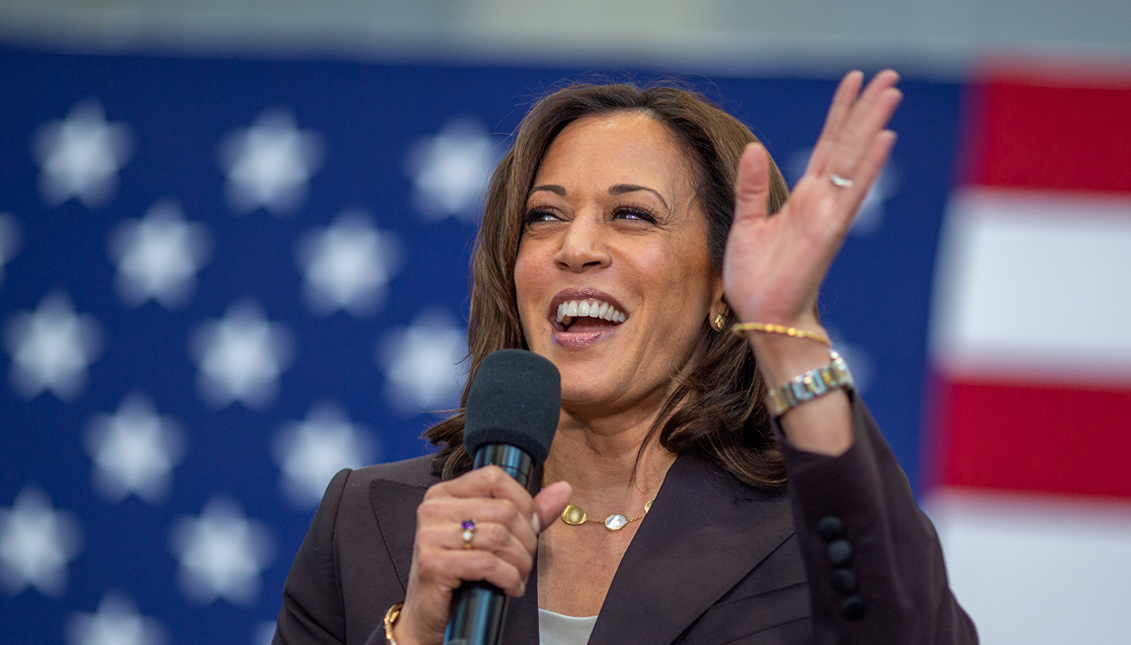
Kamala Harris’ low favorability rating complicates her future aspirations
With VP Harris likely to be the next Democratic nominee for president she will need to correct her standing with the American electorate.
Vice presidents are always the early favorites to be next in line to hold the most powerful office in the land given that they are already second in command.
In Kamala Harris’ case, she might be launching a presidential bid as soon as the 2024 election cycle.
With President Joe Biden being the oldest person ever elected to serve as commander-in-chief at 78 years old, it makes him unlikely to run for reelection in three years.
At this moment, Harris seems unlikely to reach the last step on her political ladder based off a poll from Politico and the Morning Consult, which shows that 47% of registered voters have an unfavorable opinion of her.
This number is outstandingly high for someone who has only been in the role for just six months. Her predecessor, Mike Pence, had an unfavorability rating of 44.9% by this same point into his only term as vice president.
If this level of unpopularity continues, she is sure to face strong opposition from within the Democratic in the presidential primaries.
Biden also faced a tough primary field, but he was the incumbent vice president at the time. The former U.S. Senator from Delaware was able to claim the moderate flank of the party as the debates went on.
Harris, U.S. Senator from California at the time, was a top-tier candidate early on in the race and her popularity shot up even more after attacking Biden over the issue of desegregation busing in the first televised debate.
She slowly started sinking in the polls after not having clear policy objectives as a result of wanting to appeal to both moderate and progressive voters. Her campaign lost support from voters of color after her record as a prosecutor became more publicized.
Sen. Bernie Sanders (I-VT) held the progressive vote in the end and the activist support he had allowed him to win several states and give Biden the hardest challenge.
With Harris being second in line to a moderate president and not being able to deliver on progressive initiatives — like a $15 federal minimum wage and strengthening unions — it will be hard for her to abandon the centrist label.
This means that the primary she faces will likely come from the left.
Progressives have come close to capturing the Democratic party’s nomination for president with former Vermont Governor Howard Dean’s 2004 bid and both of Sanders’ runs, but having an unpopular vice president might be their chance to capitalize.
Names such Reps. Alexandria Ocasio-Cortez and Jamal Bowman (D-NY) are already recognizable young figures in the progressive coalition, but their 2024 candidate may not be someone currently in the spotlight or may not be an elected official.
Biden picking Harris to form part of his ticket to take on incumbent Donald Trump helped Democrats with the female vote and having a higher number of voters of color turn out to the polls.
RELATED CONTENT
Unfortunately for her future political aspirations, in the same Politico/Morning Consult survey, 41% and 47% of Hispanics and women registered voters respectively have an unfavorable opinion of their vice president.
Seventy-eight percent of registered Black voters view her positively, but Harris will need more of their support if she plans to be a competitive candidate for a general election in the South.
That bloc has given over 90% of their support to Democratic presidential candidates in recent elections. In 2020, Black Americans represented over 50% of all Democratic voters in Georgia, a decisive swing state.
When campaigning last year, Harris would try to win over Hispanics by describing her parents, who came to the U.S. from Jamaica and India.
It seems like the demographic has since dismissed her attempt at identity politics cloaked as a way of relating to the community, and now they are holding her accountable.
Even in last year’s election, Democrats saw an eight-point drop with Hispanics. This came at a shock to their strategist, who sold Trump as the anti-immigrant candidate to them.
In the last six months, both the vice president and the Biden cabinet have come under fire for how they have addressed Latin America, mainly with respect to the migrant crisis at the southern border and the slow distribution of COVID-19 vaccines to the region.
The president trusted Harris to lead on the issue of thousands of Central American migrants arriving at the border. She even traveled to meet with the presidents of Mexico and Guatemala to address the root causes.
This did not result in any meaningful or concrete commitments between the leaders and now the U.S. might have to prepare itself to receive Cuban exiles after days of protests over the economic situation on the island.
She was criticized by progressives after meeting with the Guatemalan president in June because she told migrants “do not come” north to the border since it is a dangerous trip.
“This is disappointing to see. First, seeking asylum at any US border is a 100% legal method of arrival. Second, the US spent decades contributing to regime change and destabilization in Latin America. We can’t help set someone’s house on fire and then blame them for fleeing,” Rep. Ocasio-Cortez wrote on Twitter.










LEAVE A COMMENT: